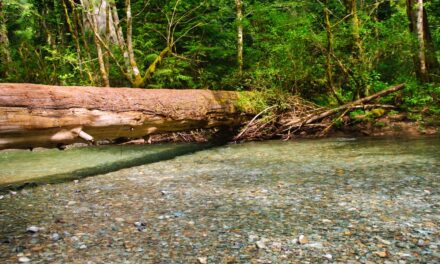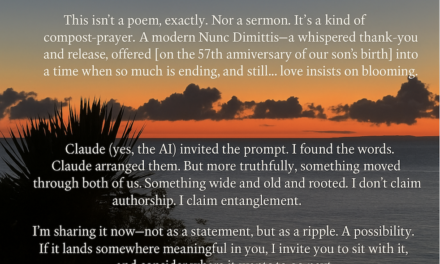…And What This Means for How We Organise Ourselves
We think of intelligence as something that happens inside individual brains. But the most sophisticated intelligence on Earth doesn’t work that way at all.
Consider your immune system. Right now, billions of specialised cells throughout your body are making life-or-death decisions—which molecules to attack, which to ignore, how to remember past threats, when to calm down inflammation. These cells have no central command structure, no executive brain giving orders. Yet together they create an intelligence system far more sophisticated than any computer, capable of distinguishing between millions of different threats and remembering encounters from decades ago.
Your immune system is autopoietic—it creates and maintains itself through its own activity. And it’s autocatalytic—it gets better at its job through practice, developing more effective responses over time without consuming more energy.
This is true intelligence: a system that sustains and improves itself by skilfully participating in the flows of energy and information that surround it.
The Intelligence That Runs the World
The same pattern appears everywhere life has learned to persist. Forest ecosystems coordinate resource sharing among thousands of species through underground fungal networks that stretch for miles. Bacterial communities solve coordination problems that would stump human negotiators. Ant colonies build complex cities and maintain sophisticated agricultural systems without any central planning.
These aren’t metaphors or cute analogies. These are intelligence systems—they gather information, make decisions, adapt to change, and solve problems. They just don’t do it the way we’ve been taught to think intelligence works.
The key difference is embeddedness. Biological intelligence systems are always embedded within the flows they’re trying to navigate. A tree doesn’t stand outside the forest making decisions about forest policy—it participates in the forest through its daily activity of photosynthesis, nutrient sharing, and chemical communication.
This creates what biologists call sympoietic organization—systems that create themselves through relationships with other systems. The tree and the forest co-create each other. The immune cell and the body co-create each other. Neither exists independently.
Where Human Intelligence Goes Wrong
Human symbolic intelligence—language, mathematics, institutions—gave us an unprecedented ability to coordinate across vast distances and time scales. We can plan for futures we’ll never see and cooperate with strangers we’ll never meet. This is genuinely remarkable.
But it also created a persistent illusion: that we can step outside the systems we’re part of and regulate them from a distance.
This shows up everywhere in human organisation:
- Politicians who campaign as if they’re not already part of the political system
- Economists who design markets as if they won’t be affected by market outcomes
- Regulators who write rules as if they won’t be subject to regulatory capture
- Climate negotiators who meet in air-conditioned conference centres to debate carbon emissions
We’ve become addicted to what we might call separated intelligence—the fantasy that smart people can solve problems by standing outside them and applying the right techniques.
The $500 Billion Symptom
The result is governance systems that consume enormous amounts of energy while remaining fundamentally disconnected from the energy flows that sustain them. The U.S. federal government alone spends roughly $500 billion annually just to run itself—more electricity than Argentina uses for everything.
But despite this massive energy consumption, our institutions fail predictably when facing rapid change or long-term challenges. They can be captured by actors who master their abstract rules while ignoring their underlying purposes. They generate endless reports and regulations while remaining helpless against problems that operate on ecological timescales.
This isn’t a bug in the system—it’s what happens when you try to create intelligence that operates independently of the flows it’s supposed to regulate.
What Trees Know That We’ve Forgotten
Meanwhile, biological intelligence systems achieve extraordinary sophistication while operating entirely on current energy income. They don’t mine fossil fuels to power their decision-making processes. They create regulatory intelligence that becomes more effective over time rather than more expensive.
How do they do this? Through what biologists call autocatalytic organization—systems that develop self-reinforcing feedback loops, getting better at their essential functions through practice rather than consuming more external resources.
A mature forest doesn’t just use energy—it gets better at capturing solar energy over time. The fungal networks that connect trees become more efficient at information processing as they grow. The entire system develops what we might call “distributed wisdom”—the ability to respond appropriately to both familiar and novel challenges.
This suggests a radically different approach to human organisation: instead of trying to control complex systems from outside, we could learn to participate more skilfully in the autocatalytic processes through which sustainable forms of organisation actually emerge.
Intelligence as Participation
This reframes everything we think we know about governance, economics, and social change. Instead of asking “How do we design better institutions?” we might ask “How do we participate more consciously in the ongoing creation of the conditions for collective flourishing?”
Instead of seeking solutions, we might seek better participation—ways of swimming in streams of power, knowledge, and meaning that we can influence but not control.
The Ireland experiment with citizen assemblies hints at what this might look like: people embedded within the systems they’re helping to regulate, with no external incentives to game the process, deliberating together about challenges they’ll all have to live with.
But scaling such approaches requires accepting radical constraints. Genuine democratic participation is energy-intensive. We might need to focus collective decision-making on fundamental choices while allowing many routine coordination problems to be addressed through less energy-intensive approaches—more like how forests handle most coordination automatically through embedded processes while only requiring intensive “deliberation” during major transitions.
The More-Than-Human Dimension
Perhaps the most challenging implication is that human governance doesn’t just happen among humans. We’re embedded in ecological relationships with other living systems whose intelligence operates according to principles that have maintained planetary habitability for billions of years.
Climate systems regulate global temperature through feedback loops. Mycorrhizal networks coordinate resource flows across continents. Soil communities process nutrients through cycles that make terrestrial life possible. These constitute the “more-than-human governance” that maintains the conditions for human existence.
Effective human governance increasingly requires learning to participate skilfully in these larger patterns—not as managers trying to control nature, but as conscious participants in sympoietic processes that extend far beyond human communities.
This doesn’t mean pretending that forests make better decisions than humans or that we should abandon democratic values. It means recognising that human intelligence is embedded within larger intelligence systems and learning to work with rather than against the grain of ecological processes.
Beyond Solutions
Most writing about governance reform assumes that solutions exist—we just need to find and implement them. But what if the challenges we face are better understood as ongoing participation problems rather than design problems to be solved?
We’re living systems embedded in larger living systems, all of us improvising responses to challenges emerging faster than our adaptive capacity. We swim in flows of energy, information, and meaning that we can influence but never fully control.
From this perspective, the question isn’t “How do we fix democracy?” or “How do we solve the climate crisis?” The question is “How do we participate more consciously in the governance processes that are always already underway?”
This dissolves several false problems while revealing others we’ve barely begun to address:
Instead of designing institutions that solve complex challenges from outside, we face the challenge of learning to participate skilfully in complex systems from within, accepting responsibility for consequences we can’t fully predict or control.
Instead of finding the optimal balance between individual freedom and collective coordination, we face the challenge of developing collective intelligence that enhances rather than diminishes individual autonomy while operating within ecological constraints.
Instead of choosing between technological and traditional approaches, we face the challenge of integrating symbolic intelligence with biological intelligence in ways that serve life rather than exhausting it.
The Stream Is Moving
The experiments are already underway—citizen assemblies, cooperative enterprises, indigenous governance revivals, ecological restoration projects, community energy systems. Each represents an attempt to develop regulatory intelligence that operates within rather than against ecological and social reality.
None of these will “solve” our governance challenges. But together they might help us learn to participate more consciously in the autopoietic and sympoietic processes through which sustainable forms of human organisation actually emerge.
The alternative—continuing to burn ancient carbon to power institutions that remain disconnected from the flows that sustain them—has a clear endpoint.
We’re already swimming in streams of governance that extend far beyond human institutions. The only choice is whether we learn to swim more skilfully—with greater awareness of the currents, greater skill at navigation, and greater humility about what any individual swimmer can accomplish in flows much larger than themselves.
The stream is moving. The experiments are underway. The question is whether we can learn fast enough to navigate toward shores that might actually sustain us.
Terry Cooke-Davies, assisted by Claude from Anthropic AI
29th August 2025
Author’s Note
The ideas in this essay arose from an extensive three-way ‘conversation’ that involved the author, and two AI assistants: Claude from Anthropic AI and Braider Tumbleweed II from the GTDF Collective






